Confirmed Invited Speakers
______________________________
Dr Juliana Finoto Bueno – Equinor
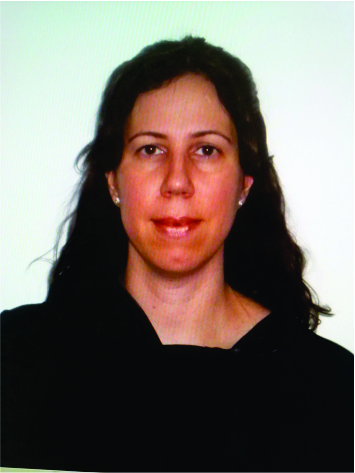 Dr Juliana Bueno is a geologist with PhD in Geosciences from the University of Campinas. She has been working with research in applied geology and geophysics focused on siliciclastic and carbonate reservoir characterization for over ten years. Currently, she works with a variety of techniques for modelling the reservoir variables from data of the well log and seismic. Her published studies are in the field of structural and stratigraphic features delineation based on seismic attributes and facies simulation data, uncertainty analysis of geological variables, and electrofacies classification. Currently, she leads the subsurface research focusing on the needs of Brazilian assets.
Dr Juliana Bueno is a geologist with PhD in Geosciences from the University of Campinas. She has been working with research in applied geology and geophysics focused on siliciclastic and carbonate reservoir characterization for over ten years. Currently, she works with a variety of techniques for modelling the reservoir variables from data of the well log and seismic. Her published studies are in the field of structural and stratigraphic features delineation based on seismic attributes and facies simulation data, uncertainty analysis of geological variables, and electrofacies classification. Currently, she leads the subsurface research focusing on the needs of Brazilian assets.
______________________________
Dr Santiago Drexler – Shell
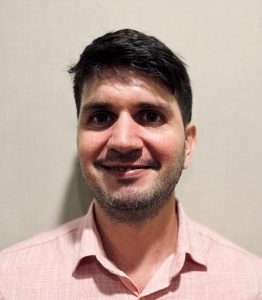 Santiago has over 15 years of experience in O&G R&D applications. He has worked in diverse areas including EOR, petrophysics, reservoir engineering and digital rock studying wettability, pore-scale displacement, reservoir modelling & simulation and upscaling among other relevant topics for Industry and Academia. Currently, he is Sr. Technology Lead at Shell, managing a portfolio of Subsurface R&D Projects developing and implementing innovative solutions to problems worth solving in Brazilian Pre-salt Assets. Santiago holds a BSc in Chem. Eng. From the University of Buenos Aires, an MSc from the University of Oklahoma, a PhD from the Federal University of Rio de Janeiro and an MBA from the University of São Paulo.
Santiago has over 15 years of experience in O&G R&D applications. He has worked in diverse areas including EOR, petrophysics, reservoir engineering and digital rock studying wettability, pore-scale displacement, reservoir modelling & simulation and upscaling among other relevant topics for Industry and Academia. Currently, he is Sr. Technology Lead at Shell, managing a portfolio of Subsurface R&D Projects developing and implementing innovative solutions to problems worth solving in Brazilian Pre-salt Assets. Santiago holds a BSc in Chem. Eng. From the University of Buenos Aires, an MSc from the University of Oklahoma, a PhD from the Federal University of Rio de Janeiro and an MBA from the University of São Paulo.
______________________________
Dr Rodrigo Surmas – Petrobras
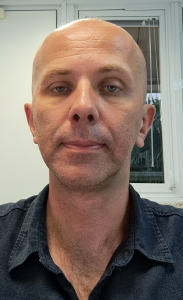 Rodrigo Surmas is an advisor for Digital Rock Physics at Petrobras Research Center, CENPES, in Rio de Janeiro. He has been working since 2001 on flow studies using numerical simulation, with applications to porous media and at Petrobras since 2008, focusing on the development of methods and processes for the characterization of porous media and determination of petrophysical properties based on imaging, numerical simulation, and artificial intelligence.
Rodrigo Surmas is an advisor for Digital Rock Physics at Petrobras Research Center, CENPES, in Rio de Janeiro. He has been working since 2001 on flow studies using numerical simulation, with applications to porous media and at Petrobras since 2008, focusing on the development of methods and processes for the characterization of porous media and determination of petrophysical properties based on imaging, numerical simulation, and artificial intelligence.
______________________________
Dr Paulo Cesar Philippi – PUC/PR
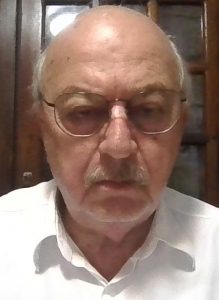 Paulo Philippi holds a Bachelor’s degree in Mechanical Engineering from UFSC (1973), a Master’s degree in Engineering and Space Technology from the National Institute for Space Research (1975), and a Ph.D. in Fluid Thermophysics from the University of Provence in Marseille, France (1980). He served as a faculty member in the Department of Mechanical Engineering at UFSC from 1975 to 2016, holding the position of Full Professor since 1993. Currently, he is a Full Professor at the Pontifical Catholic University of Paraná (PUCPR) – Curitiba campus. He was the creator and responsible for several courses in the areas of Thermodynamics, Porous Media, and Kinetic Methods in Fluid Mechanics, taught at undergraduate and graduate levels. His research interests lie in multidisciplinary areas that require the contribution of Physics for the formulation and mathematical equation of problems at the frontier of knowledge, involving microhydrodynamics, immiscible displacements in porous media, and phase transitions. Since 1997, he has been working on the theoretical development of discrete forms of the Boltzmann equation, considered a mesoscopic method capable of solving problems at the macroscopic level using molecular information.
Paulo Philippi holds a Bachelor’s degree in Mechanical Engineering from UFSC (1973), a Master’s degree in Engineering and Space Technology from the National Institute for Space Research (1975), and a Ph.D. in Fluid Thermophysics from the University of Provence in Marseille, France (1980). He served as a faculty member in the Department of Mechanical Engineering at UFSC from 1975 to 2016, holding the position of Full Professor since 1993. Currently, he is a Full Professor at the Pontifical Catholic University of Paraná (PUCPR) – Curitiba campus. He was the creator and responsible for several courses in the areas of Thermodynamics, Porous Media, and Kinetic Methods in Fluid Mechanics, taught at undergraduate and graduate levels. His research interests lie in multidisciplinary areas that require the contribution of Physics for the formulation and mathematical equation of problems at the frontier of knowledge, involving microhydrodynamics, immiscible displacements in porous media, and phase transitions. Since 1997, he has been working on the theoretical development of discrete forms of the Boltzmann equation, considered a mesoscopic method capable of solving problems at the macroscopic level using molecular information.
______________________________
Dr Eduardo Gildin – Texas A&M University
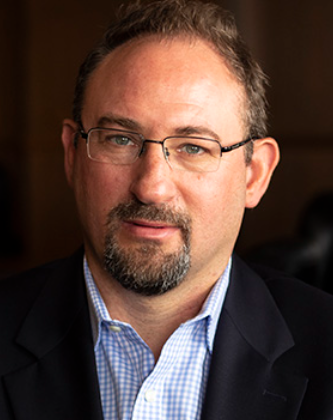 Dr Eduardo Gildin is a Professor of Petroleum Engineering at Texas A&M University and is the holder of the Rob L. Adams ’40 Professor in Petroleum Engineering. Dr. Gildin received his PhD from The University of Texas at Austin in Aerospace Engineering and has held post-doctoral positions with Rice University and UT Austin before joining the Petroleum Engineering Department at Texas A&M as an Assistant Professor. He was promoted to Associate Professor with Tenure in 2015, and then Professor in 2021. He also holds an MS in Mechatronics (University of Sao Paulo) and a BS in Mechanical Engineering (FEI), both from Brazil. Dr Gildin teaches undergraduate and graduate courses in the mathematics of reservoir simulation, data analytics and reduced-order modeling and has published more than 150 papers in peer-reviewed journals and conferences. His research has been supported by grants from NSF, DOE, DOD, NASA and Industry, with main topics in (1) physics-based and data-driven reduced-order modeling for reservoir simulation and optimization; and (2) drilling modeling, control and automation. Dr. Gildin was an Associate Editor for SPEJ and has been involved in technical committees within SPE, especially with the Reservoir Simulation Conference, LACPEC and several SPE workshops. Dr. Gildin was inducted into the SPE Distinguish Membership in 2021 and was the recipient of the Texas A&M “Dean of Engineering Excellence Award – Associate Professor” (2018) and the College of Engineering Outstanding Contributions Award (2020).
Dr Eduardo Gildin is a Professor of Petroleum Engineering at Texas A&M University and is the holder of the Rob L. Adams ’40 Professor in Petroleum Engineering. Dr. Gildin received his PhD from The University of Texas at Austin in Aerospace Engineering and has held post-doctoral positions with Rice University and UT Austin before joining the Petroleum Engineering Department at Texas A&M as an Assistant Professor. He was promoted to Associate Professor with Tenure in 2015, and then Professor in 2021. He also holds an MS in Mechatronics (University of Sao Paulo) and a BS in Mechanical Engineering (FEI), both from Brazil. Dr Gildin teaches undergraduate and graduate courses in the mathematics of reservoir simulation, data analytics and reduced-order modeling and has published more than 150 papers in peer-reviewed journals and conferences. His research has been supported by grants from NSF, DOE, DOD, NASA and Industry, with main topics in (1) physics-based and data-driven reduced-order modeling for reservoir simulation and optimization; and (2) drilling modeling, control and automation. Dr. Gildin was an Associate Editor for SPEJ and has been involved in technical committees within SPE, especially with the Reservoir Simulation Conference, LACPEC and several SPE workshops. Dr. Gildin was inducted into the SPE Distinguish Membership in 2021 and was the recipient of the Texas A&M “Dean of Engineering Excellence Award – Associate Professor” (2018) and the College of Engineering Outstanding Contributions Award (2020).
______________________________
Dr Amir Raoof – Utrecht University
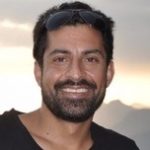
______________________________
Dr Tannaz Pak – Teesside University
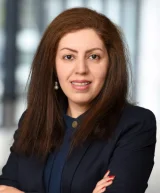 Tannaz is an Associate Professor in Energy and Environmental engineering. She holds the Chartered Engineer status and is a Fellow of the Institute of Materials, Minerals and Mining (CEng FIMMM). She is a Fellow of Advance HE (FHEA). Tannaz’s research is mainly focused on groundwater clean-up, water treatment, biochar and pyrolysis, nanotechnology, soil remediation, waste management, sustainable material, and non-destructive testing. In 2021, Tannaz was selected as one of the Top 50 Women in Engineering by the Women’s Engineering Society in the UK. Prior to starting her academic career, Tannaz did a PhD in Geosciences at the University of Edinburgh in collaboration with Heriot-Watt University, completed in 2015. During her PhD she studied the dynamics of multiphase fluid flow in porous carbonate rocks, at pore-scale. During this PhD she worked with Petrobras and BG group as industrial sponsors and Brazilian universities as academic partners. She completed an MSc. in Reservoir Geoscience and Engineering (RGE) at the Institut Français du Pétrole (IFP School) in France. She has a BSc in Engineering from Iran.
Tannaz is an Associate Professor in Energy and Environmental engineering. She holds the Chartered Engineer status and is a Fellow of the Institute of Materials, Minerals and Mining (CEng FIMMM). She is a Fellow of Advance HE (FHEA). Tannaz’s research is mainly focused on groundwater clean-up, water treatment, biochar and pyrolysis, nanotechnology, soil remediation, waste management, sustainable material, and non-destructive testing. In 2021, Tannaz was selected as one of the Top 50 Women in Engineering by the Women’s Engineering Society in the UK. Prior to starting her academic career, Tannaz did a PhD in Geosciences at the University of Edinburgh in collaboration with Heriot-Watt University, completed in 2015. During her PhD she studied the dynamics of multiphase fluid flow in porous carbonate rocks, at pore-scale. During this PhD she worked with Petrobras and BG group as industrial sponsors and Brazilian universities as academic partners. She completed an MSc. in Reservoir Geoscience and Engineering (RGE) at the Institut Français du Pétrole (IFP School) in France. She has a BSc in Engineering from Iran.______________________________
Dr Veronica Iris Marconi – Universidad Nacional de Córdoba & CONICET
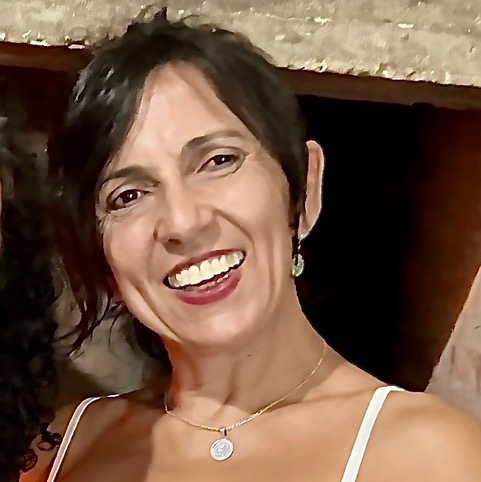 Dr. Veronica I. Marconi is an Associate Professor in FaMAF-Universidad Nacional de Córdoba and Independent Researcher in CONICET, Argentina, where is working since 2007. She is a theoretical physicist primarily focusing today on active matter applications and multidisciplinary research. With extensive experience in Computational Physics, she teaches the subject since 2012. She obtained a PhD in Physics from Instituto Balseiro, Centro Atómico Bariloche (AR) in 2002 and was honoured for her thesis on vortex dynamics with the Giambiagi Prize (2003). She worked in Europe as postdoc at ICTP-Trieste (2002-2004), Neuchâtel University (2004-2006), winning a Swiss-NSF grant for her project in superconductivity and UCMadrid (2006-2007) as a researcher with several contributions and patents on magnetic materials nanodesigned. Her areas of expertise include superconductivity (vortex dynamics, JJA and mesoscopic devices), nanostructured magnetic films (memory devices), crack propagation, natural and artificial microswimmers, microfluidics, porous media, gels and microgels. Today the central area of research are “Microdevices applied to life sciences, including agronomy (SOCs), reproductive medicine (LOCs, POCs), animal reproduction, and biotechnology in general. More info: ORCID.
Dr. Veronica I. Marconi is an Associate Professor in FaMAF-Universidad Nacional de Córdoba and Independent Researcher in CONICET, Argentina, where is working since 2007. She is a theoretical physicist primarily focusing today on active matter applications and multidisciplinary research. With extensive experience in Computational Physics, she teaches the subject since 2012. She obtained a PhD in Physics from Instituto Balseiro, Centro Atómico Bariloche (AR) in 2002 and was honoured for her thesis on vortex dynamics with the Giambiagi Prize (2003). She worked in Europe as postdoc at ICTP-Trieste (2002-2004), Neuchâtel University (2004-2006), winning a Swiss-NSF grant for her project in superconductivity and UCMadrid (2006-2007) as a researcher with several contributions and patents on magnetic materials nanodesigned. Her areas of expertise include superconductivity (vortex dynamics, JJA and mesoscopic devices), nanostructured magnetic films (memory devices), crack propagation, natural and artificial microswimmers, microfluidics, porous media, gels and microgels. Today the central area of research are “Microdevices applied to life sciences, including agronomy (SOCs), reproductive medicine (LOCs, POCs), animal reproduction, and biotechnology in general. More info: ORCID.
______________________________
Dr Denis Voskov – TU Delft
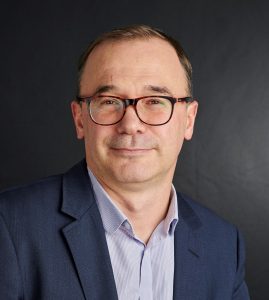 Dr. Denis Voskov is an Associate Professor at the Department of Geoscience and Engineering, TU Delft, and Adjunct Professor at the Department of Energy, Science and Engineering, Stanford University. He is leading a research group on the development of advanced simulation capability for energy production and storage processes related to the deep subsurface. His previous positions include senior researcher at Stanford University, founder and CTO of Rock Flow Dynamics (t.Navigator platform), chief engineer at YUKOS EP company, and a leading specialist at the Institute for Problems in Mechanics, Russian Academy of Sciences.
Dr. Denis Voskov is an Associate Professor at the Department of Geoscience and Engineering, TU Delft, and Adjunct Professor at the Department of Energy, Science and Engineering, Stanford University. He is leading a research group on the development of advanced simulation capability for energy production and storage processes related to the deep subsurface. His previous positions include senior researcher at Stanford University, founder and CTO of Rock Flow Dynamics (t.Navigator platform), chief engineer at YUKOS EP company, and a leading specialist at the Institute for Problems in Mechanics, Russian Academy of Sciences.
______________________________
Dr Dachamir Hotza – Federal University of Santa Catarina
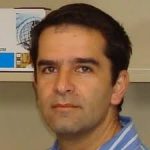 Dr Dachamir Hotza is a distinguished Full Professor at the Federal University of Santa Catarina (UFSC) in Brazil, renowned for his academic contributions and scientific achievements. He graduated in Chemical Engineering from UFSC in 1988, earning his Master’s degree in Mechanical Engineering in 1991. He obtained his PhD in Materials Engineering from the Technical University of Hamburg-Harburg (TUHH) in Germany in 1996. At UFSC, Dachamir leads the Research Group on Converging and Enabling Technologies (G-TECH) and oversees key laboratories such as the Ceramic Processing Laboratory (PROCER) and the Interdisciplinary Laboratory for the Development of Nanostructures (LINDEN). His areas of expertise encompass nanotechnology, sustainability, and materials processing. Among his accolades are the FAPESC Innovation Award – Professor Caspar Erich Stemmer (2021) and the FAPESC/CONFAP Science, Technology, and Innovation Award (2022). He was honored as a Fellow of the American Ceramic Society in 2023 and received the Fulbright Chair Award in Sustainable Development in 2024.
Dr Dachamir Hotza is a distinguished Full Professor at the Federal University of Santa Catarina (UFSC) in Brazil, renowned for his academic contributions and scientific achievements. He graduated in Chemical Engineering from UFSC in 1988, earning his Master’s degree in Mechanical Engineering in 1991. He obtained his PhD in Materials Engineering from the Technical University of Hamburg-Harburg (TUHH) in Germany in 1996. At UFSC, Dachamir leads the Research Group on Converging and Enabling Technologies (G-TECH) and oversees key laboratories such as the Ceramic Processing Laboratory (PROCER) and the Interdisciplinary Laboratory for the Development of Nanostructures (LINDEN). His areas of expertise encompass nanotechnology, sustainability, and materials processing. Among his accolades are the FAPESC Innovation Award – Professor Caspar Erich Stemmer (2021) and the FAPESC/CONFAP Science, Technology, and Innovation Award (2022). He was honored as a Fellow of the American Ceramic Society in 2023 and received the Fulbright Chair Award in Sustainable Development in 2024.
______________________________
Dr Sebastião Lucena – UFC
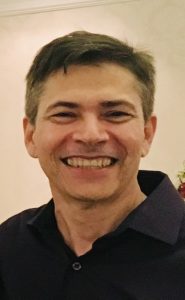 Dr Lucena is a titular professor in chemical engineering at the Federal University of Ceará – UFC, Brazil. PhD in Chemical Engineering from the State University of Campinas, Brazil with research internship at Northwestern University, USA (Snurr Group). MSc in Materials Science and Engineering from Federal University of Sao Carlos, Brazil. He was Head of the chemical engineering department and Coordinator of the graduate program in chemical engineering at UFC. He is currently vice-coordinator of the postgraduate program in Chemical Engineering at UFC and associated editor of the Brazilian Journal of Chemical Engineering. Dr. Lucena is the author of over 50 peer-reviewed journal articles and research interest in molecular simulation with emphasis on adsorption and transport properties methods based on statistical mechanics (Monte Carlo and molecular dynamics). His research has received funding from government agencies (Funcap, CNPq and Finep) as well as companies: Petrobras, Eneva, GALP and ExxonMobil. His work focuses on the prediction of oil and gas properties relevant to reservoir simulation, new adsorbents for CO2 capture, energy storage involving H2 and natural gas, properties of heterogeneous materials, flow in porous media, and colloid science.
Dr Lucena is a titular professor in chemical engineering at the Federal University of Ceará – UFC, Brazil. PhD in Chemical Engineering from the State University of Campinas, Brazil with research internship at Northwestern University, USA (Snurr Group). MSc in Materials Science and Engineering from Federal University of Sao Carlos, Brazil. He was Head of the chemical engineering department and Coordinator of the graduate program in chemical engineering at UFC. He is currently vice-coordinator of the postgraduate program in Chemical Engineering at UFC and associated editor of the Brazilian Journal of Chemical Engineering. Dr. Lucena is the author of over 50 peer-reviewed journal articles and research interest in molecular simulation with emphasis on adsorption and transport properties methods based on statistical mechanics (Monte Carlo and molecular dynamics). His research has received funding from government agencies (Funcap, CNPq and Finep) as well as companies: Petrobras, Eneva, GALP and ExxonMobil. His work focuses on the prediction of oil and gas properties relevant to reservoir simulation, new adsorbents for CO2 capture, energy storage involving H2 and natural gas, properties of heterogeneous materials, flow in porous media, and colloid science.
______________________________
Dr Linda Luquot – Université de Montpellier
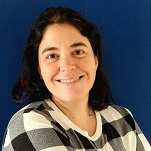 Dr Linda Luquot (CNRS researcher at Geosciences Montpellier) is a doctor in Geosciences after training in physics and chemistry. She has developed her research on reactive transport processes in porous and fractured media applied to geoscience topics such as CO2 geological storage, seawater intrusion, geothermic, managed aquifer recharge and karstic networks formation. She won the Michel Gouillou-Schlumberger Academic Scientific Prize in 2022 for her work on CO2 geological storage. She has published over 60 peer-reviewed articles and supervised 15 PhD students.
Dr Linda Luquot (CNRS researcher at Geosciences Montpellier) is a doctor in Geosciences after training in physics and chemistry. She has developed her research on reactive transport processes in porous and fractured media applied to geoscience topics such as CO2 geological storage, seawater intrusion, geothermic, managed aquifer recharge and karstic networks formation. She won the Michel Gouillou-Schlumberger Academic Scientific Prize in 2022 for her work on CO2 geological storage. She has published over 60 peer-reviewed articles and supervised 15 PhD students.
______________________________
Dr Kamaljit Singh – Heriot-Watt University
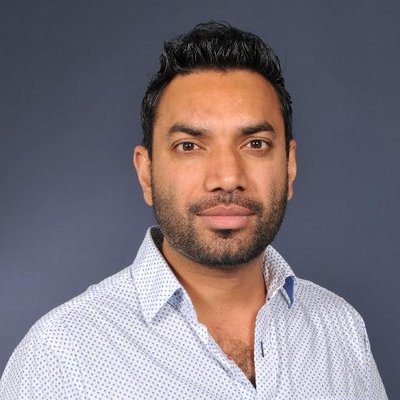 Dr Kamaljit Singh is an Associate Professor at the Institute of GeoEnergy Engineering, Heriot-Watt University. He obtained his undergraduate degree in Civil Engineering from Punjab Technical University (India), Masters in Environmental Engineering from Panjab University (India), and PhD in Civil Engineering from the University of New South Wales (Australia), followed by holding postdoc positions at the Max-Planck Institute for Dynamics and Self- Organization in collaboration with Saarland University (Germany), European Synchrotron Radiation Facility (France) and Imperial College London (UK). At his current position, he leads the DigiPorFlow Group. His research focuses on 3D imaging and modelling of fluid flow in porous media, with applications to subsurface H2 and CO2 storage.
Dr Kamaljit Singh is an Associate Professor at the Institute of GeoEnergy Engineering, Heriot-Watt University. He obtained his undergraduate degree in Civil Engineering from Punjab Technical University (India), Masters in Environmental Engineering from Panjab University (India), and PhD in Civil Engineering from the University of New South Wales (Australia), followed by holding postdoc positions at the Max-Planck Institute for Dynamics and Self- Organization in collaboration with Saarland University (Germany), European Synchrotron Radiation Facility (France) and Imperial College London (UK). At his current position, he leads the DigiPorFlow Group. His research focuses on 3D imaging and modelling of fluid flow in porous media, with applications to subsurface H2 and CO2 storage.
______________________________
Dr Mathias B. Steiner – IBM Brasil
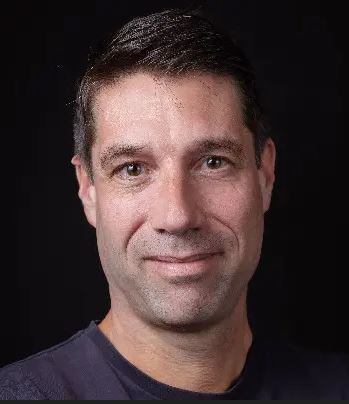 Dr. Mathias Steiner is a physicist with 20+ years of industrial research and development experience acquired on three continents. In his work, he combines computational methods and lab experiments for developing and testing novel scientific tools. As a co-lead of IBM Research’s Sustainability initiative, he explores the convergence of artificial intelligence, hybrid cloud, and quantum computing for accelerating materials discovery. Dr Mathias began his IBM career in 2007 at the TJ Watson Research Center, where he conducted groundbreaking research on functional materials and led the team that first reported electrically generated light emission in atomically thin, 2D semiconductors. Mathias holds a doctorate in Physical Chemistry (2006), a diploma in Physics (2002), as well as a diploma in Business Administration (2013). Mathias is a member of APS, IEEE, and SPIE.
Dr. Mathias Steiner is a physicist with 20+ years of industrial research and development experience acquired on three continents. In his work, he combines computational methods and lab experiments for developing and testing novel scientific tools. As a co-lead of IBM Research’s Sustainability initiative, he explores the convergence of artificial intelligence, hybrid cloud, and quantum computing for accelerating materials discovery. Dr Mathias began his IBM career in 2007 at the TJ Watson Research Center, where he conducted groundbreaking research on functional materials and led the team that first reported electrically generated light emission in atomically thin, 2D semiconductors. Mathias holds a doctorate in Physical Chemistry (2006), a diploma in Physics (2002), as well as a diploma in Business Administration (2013). Mathias is a member of APS, IEEE, and SPIE.
______________________________
Dr Nathaly Lopes Archilha – LNLS/CNPEM
 Dr Nathaly Lopes Archilha is a physicist with a Master’s degree in Physics from the University of São Paulo (USP) and a Ph.D. from the State University of Norte Fluminense, during which she completed a research period at the University of Manchester. She leads the MOGNO group at the Brazilian Synchrotron Light Laboratory (LNLS/CNPEM), managing the MOGNO beamline focused on micro and nanotomography at the Sirius synchrotron facility. Nathaly also coordinates industrial projects in partnership with Petrobras and Equinor. These projects aim to build a scientific infrastructure that enables time-resolved X-ray tomography experiments under reservoir-like pressure and temperature conditions, allowing advanced studies of fluid flow in porous media.
Dr Nathaly Lopes Archilha is a physicist with a Master’s degree in Physics from the University of São Paulo (USP) and a Ph.D. from the State University of Norte Fluminense, during which she completed a research period at the University of Manchester. She leads the MOGNO group at the Brazilian Synchrotron Light Laboratory (LNLS/CNPEM), managing the MOGNO beamline focused on micro and nanotomography at the Sirius synchrotron facility. Nathaly also coordinates industrial projects in partnership with Petrobras and Equinor. These projects aim to build a scientific infrastructure that enables time-resolved X-ray tomography experiments under reservoir-like pressure and temperature conditions, allowing advanced studies of fluid flow in porous media.
______________________________
Dr Rodrigo Carlos Viana Coelho – CBPF
 Dr Rodrigo Coelho is an associate researcher at the Brazilian Centre for Research in Physics (CBPF) with 10+ years of experience applying the lattice Boltzmann method (LBM) to study a wide range of fluid systems. His research spans electron hydrodynamics, liquid crystals, active matter, emulsions, multicomponent flows, and transport in porous media. He holds a PhD, MSc, and BSc in Physics from the Federal University of Rio de Janeiro (UFRJ), with part of his doctoral work conducted at ETH Zürich. He was a postdoctoral researcher at the University of Lisbon, in Portugal, and has also worked in industry, including a research internship at IBM Research Brazil and a position as a development engineer at Numeca International, in Belgium.
Dr Rodrigo Coelho is an associate researcher at the Brazilian Centre for Research in Physics (CBPF) with 10+ years of experience applying the lattice Boltzmann method (LBM) to study a wide range of fluid systems. His research spans electron hydrodynamics, liquid crystals, active matter, emulsions, multicomponent flows, and transport in porous media. He holds a PhD, MSc, and BSc in Physics from the Federal University of Rio de Janeiro (UFRJ), with part of his doctoral work conducted at ETH Zürich. He was a postdoctoral researcher at the University of Lisbon, in Portugal, and has also worked in industry, including a research internship at IBM Research Brazil and a position as a development engineer at Numeca International, in Belgium.









